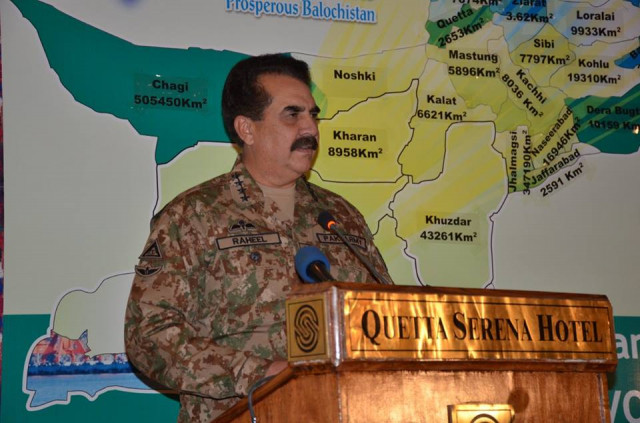Understanding Balochistan
In recent years, the province has become a battleground for separatist, ethnic and sectarian interests

Army chief General Raheel Sharif addresses a seminar in Quetta on Tuesday. PHOTO: ISPR
A two-day seminar on “Prospects of Peace and Prosperity in Balochistan” heard General Raheel say that the province had become “a hotbed of proxy wars” which were a part of a “regional and global grand strategy”. He called Balochistan a most complex problem — it is — and then went off-piste to talk of economic, ethnographic and sectarian divides, demonstrating a grasp of the big picture, the landscape beyond the military perspective, that has marked him out as a distinctly singular player in the recent history of governance in Pakistan. The army chief also talked about the poorly developed infrastructure, extremes of poverty, desperately poor education and health facilities and lack of jobs — all of which have contributed to the parlous state of the province. There was nothing that was particularly new in what General Raheel had to say, but it was unusual to hear all this coming from a military source, at least in terms of an understanding of the wider problems that are not the core business of the soldiery. The army in the form of the Frontier Works Organisation has been doing its bit of late, and by the end of 2016 will have completed 870km of roads in the province since 2014. Without burnishing the general’s image unduly, one might wonder why the civilian government wasn’t able to undertake such initiatives.
Published in The Express Tribune, February 4th, 2016.
Like Opinion & Editorial on Facebook, follow @ETOpEd on Twitter to receive all updates on all our daily pieces.















COMMENTS
Comments are moderated and generally will be posted if they are on-topic and not abusive.
For more information, please see our Comments FAQ